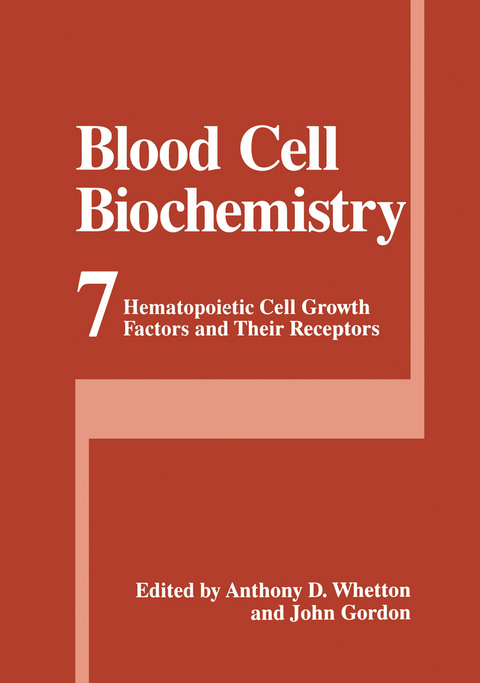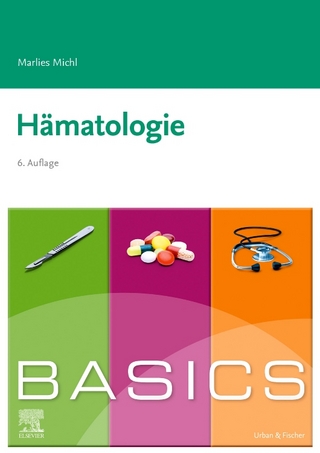
Blood Cell Biochemistry
Springer-Verlag New York Inc.
978-1-4757-7052-0 (ISBN)
1 The Hematopoietic Cytokine Receptors.- 2 Interleukin 13 and Related Cytokines.- 3 The Tumor-Necrosis-Factor-Related Superfamily of Ligands and Receptors.- 4 Cellular Signaling Events in B Lymphocytes.- 5 Cellular and Molecular Aspects of Myeloid Cell Proliferation and Development.- 6 Myelosuppressive Cytokines and Peptides.- 7 Apoptosis in Hematopoiesis and Leukemogenesis.- 8 Human T-Cell Differentiation and Cytokine Regulation.- 9 Hematopoietic Growth Factors Involved in B-Cell Development.- 10 Regulation of Peripheral B-Cell Growth and Differentiation.- 11 In Vitro Regulation of Dendritic Cell Development and Function.- 12 Responses of Leukemia Cells to Hematopoietic Growth Factors: Involvement of Autocrine Growth Mechanisms, Cytogenetic Abnormalities, and Defective Maturation Signaling.- 13 The Role of Interleukin 5 in the Production and Function of Eosinophils.- 14 Stem Cell Factor.- 15 Clinical Use of Myeloid Growth Factors.
| Reihe/Serie | Blood Cell Biochemistry ; 7 |
|---|---|
| Zusatzinfo | XXIV, 420 p. |
| Verlagsort | New York, NY |
| Sprache | englisch |
| Maße | 178 x 254 mm |
| Themenwelt | Medizinische Fachgebiete ► Innere Medizin ► Hämatologie |
| Medizin / Pharmazie ► Medizinische Fachgebiete ► Onkologie | |
| Studium ► 2. Studienabschnitt (Klinik) ► Humangenetik | |
| Studium ► Querschnittsbereiche ► Infektiologie / Immunologie | |
| Naturwissenschaften ► Biologie ► Biochemie | |
| ISBN-10 | 1-4757-7052-9 / 1475770529 |
| ISBN-13 | 978-1-4757-7052-0 / 9781475770520 |
| Zustand | Neuware |
| Informationen gemäß Produktsicherheitsverordnung (GPSR) | |
| Haben Sie eine Frage zum Produkt? |
aus dem Bereich


